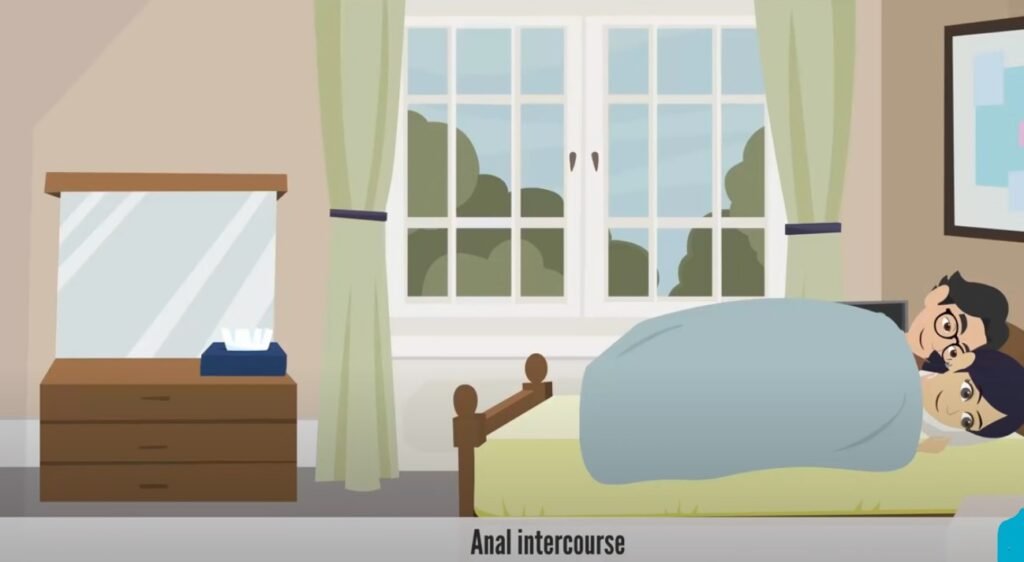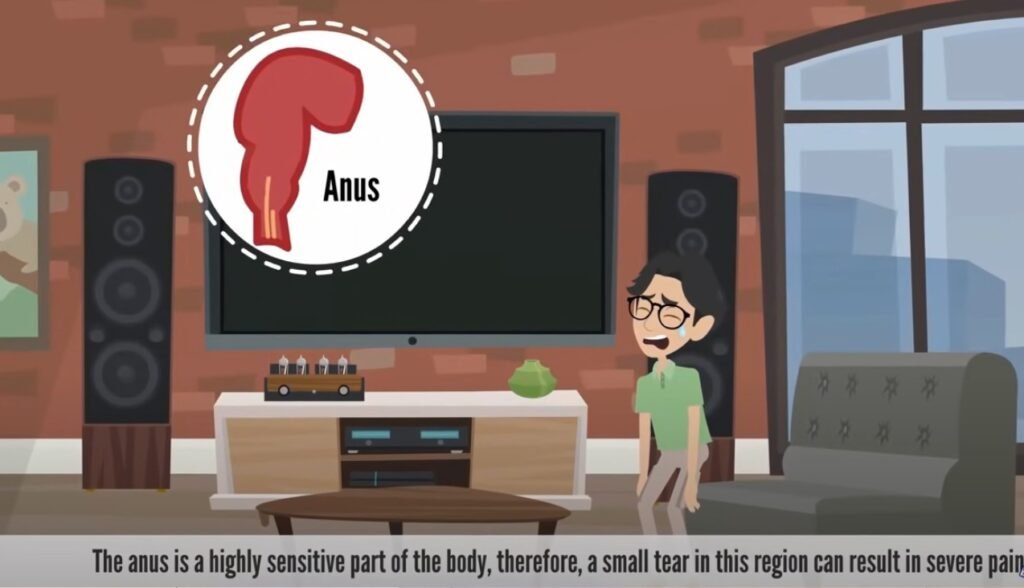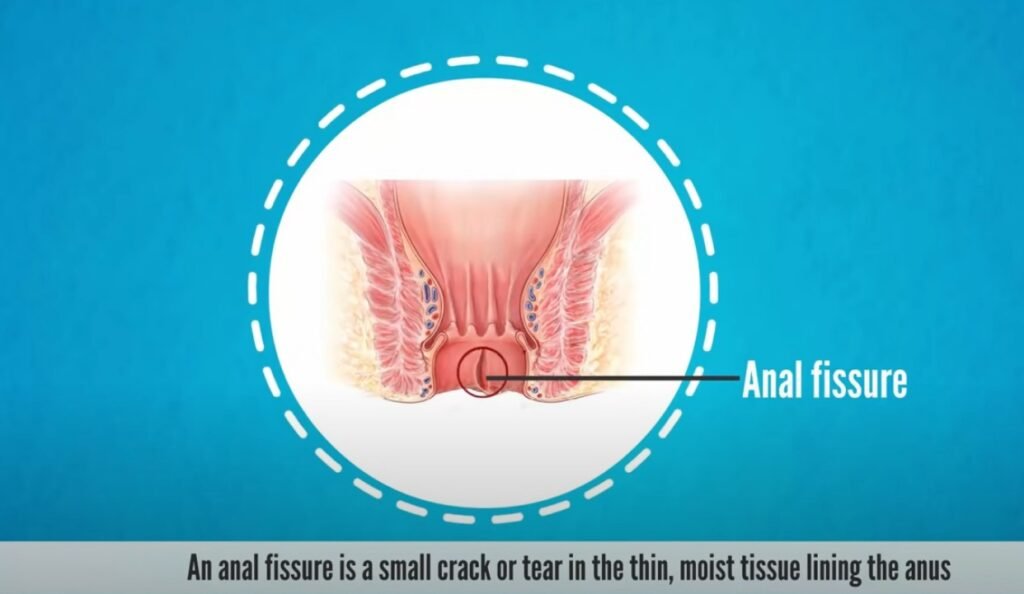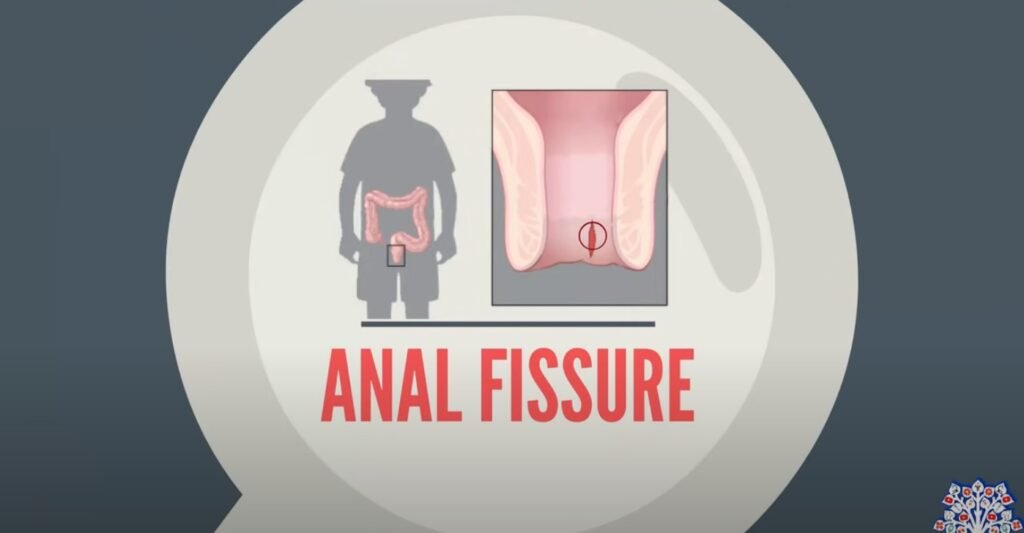Introduction to Anal Fissure
An anal fissure, though often manageable at home, can cause discomfort and distress. In this comprehensive guide, we’ll delve into what anal fissures are, their symptoms, causes, treatment options, and how to prevent them.
What is an Anal Fissure?
An anal fissure is a small tear or cut in the lining of the anus, typically resulting in severe pain and bright red bleeding during or after bowel movements. While most fissures heal on their own, persistent ones can lead to chronic issues.
An anal fissure refers to a painful condition characterized by a crack in the skin surrounding the anus. It can significantly impact an individual’s daily life, causing discomfort and distress. Understanding the symptoms and causes of anal fissure is essential for proper management and treatment.
Symptoms of Anal Fissure
Common symptoms associated with anal fissures include:
- Visible tear or skin tag around the anus
- Sharp pain during bowel movements
- Blood streaks on stools or toilet paper
- Burning or itching in the anal area
Symptoms of an anal fissure include visible tears around the anus, sharp pain during bowel movements, streaks of blood on stools or toilet paper, and burning or itching in the anal area. Anal fissure presents with sharp pain during bowel movements, often accompanied by bleeding and itching around the anus. The intensity of discomfort increases with any stretching of the affected area, making routine activities challenging for the patient.
Causes of Anal Fissure

Causes of Anal Fissures
Anal fissures often occur due to factors such as:
- Passing large or hard stools
- Chronic constipation or frequent diarrhea
- Straining during bowel movements or childbirth
- Inflammatory bowel disease (IBD)
- Reduced blood flow to the anorectal area
- Engaging in anal sex or inserting objects into the anus
The primary cause of an anal fissure is passing large or hard stools, which can tear the skin around the anus. Other factors include chronic constipation, diarrhea, straining during childbirth or bowel movements, inflammatory bowel disease, tight anal sphincter muscles, and engaging in anal sex. Chronic constipation is the primary cause of anal fissure, leading to tissue damage and mucous membrane injury. Incorrect feeding habits contribute to the development of this condition, exacerbating the risk of fissures reopening with subsequent bowel movements.
Treatment Approaches for Anal Fissure
Treatment for Anal Fissures
Most anal fissures can be managed with home remedies, including:
- Over-the-counter stool softeners
- Increased fluid intake and fiber-rich diet
- Sitz baths to relax anal muscles
- Topical pain relievers like nitroglycerin or hydrocortisone cream
- Calcium channel blocker ointments or Botox injections to relax sphincter muscles
In severe or persistent cases, surgical options like anal sphincterotomy may be considered.
Most anal fissures can be managed at home with remedies such as stool softeners, increased fluid intake, fiber supplements, sitz baths, and topical pain relievers like nitroglycerin ointment or hydrocortisone cream. For persistent fissures, medical procedures like Botox injections or anal sphincterotomy may be necessary. The treatment of anal fissure focuses on softening stools, maintaining regular bowel movements, and avoiding constipation. Patients are advised to undergo a juice fast followed by a diet consisting of fresh fruits to cleanse the bowels and promote healing. Incorporating unrefined foods and avoiding sugary products are essential steps in the treatment regimen.

Prevention of Anal Fissure
Prevention of Anal Fissures
While anal fissures may not always be preventable, adopting certain lifestyle habits can help reduce the risk. These include:
- Keeping the anal area clean and dry
- Maintaining good bowel habits with a fiber-rich diet and adequate hydration
- Promptly treating conditions like diarrhea
- Changing diapers frequently in infants with the condition
While anal fissures can’t always be prevented, you can reduce your risk by keeping the anal area dry, cleansing it gently with mild soap and water, staying hydrated, eating fiber-rich foods, exercising regularly, and treating diarrhea promptly.
Home Remedies and Preventive Measures
Home Remedies for Anal Fissures: Healing, Prevention, and When to Seek Help
An anal fissure can be uncomfortable and disruptive, but many cases can be effectively managed at home. Let’s explore how you can treat an anal fissure at home, the healing timeline, when to seek medical assistance, and preventive measures to avoid future occurrences.
Understanding Anal Fissures
An anal fissure is a small tear or cut in the skin near the anus. While often caused by factors like constipation, low fiber diet, or prior anal surgery, it can lead to pain, bleeding, and discomfort during bowel movements.
Can You Treat an Anal Fissure at Home?
For acute fissures with mild symptoms lasting fewer than 6 weeks, home treatments can be effective. However, if symptoms persist beyond this timeframe or worsen, medical attention is necessary.
Around 40% of acute fissures progress to chronic stages, emphasizing the importance of early intervention.
Best At-Home Treatment Options
Several home remedies can alleviate symptoms and aid healing:
- Sitz Baths: Soaking the anal area in warm water several times a day can relieve pain and promote healing.
- Stool Softeners: Over-the-counter options can make bowel movements softer and less painful, reducing the risk of further injury.
- High Fiber Diet: Foods rich in fiber can prevent constipation and promote regular, softer bowel movements.
- Hydration: Drinking plenty of water maintains soft stools and prevents dehydration.
- Topical Analgesics: Creams containing lidocaine may provide temporary pain relief when applied to the anal area.
Healing Timeline
The time for healing varies based on factors like severity and treatment effectiveness:
- Acute Fissure: Improvement may be seen in days to a week, with complete healing within weeks.
- Chronic Fissure: Healing may take several weeks to months due to the nature of older or recurring tears.
When to Seek Medical Attention
Medical help should be sought if:
- Symptoms persist or worsen despite at-home treatments.
- There’s a history of recurrent fissures.
- Severe pain or bleeding occurs during bowel movements.
- Complications like infection develop.

Prevention Strategies
Preventing anal fissures involves:
- Dietary Changes: Consuming a high fiber diet to keep stools soft and regular.
- Hydration: Drinking adequate water to stay hydrated.
- Good Bowel Habits: Responding promptly to bowel urges and avoiding straining.
- Hygienic Practices: Using soft toilet paper and gentle cleansing after bowel movements.
Summary
While many anal fissures can be managed at home, it’s crucial to seek medical advice if symptoms persist or worsen. By implementing preventive measures and adopting healthy habits, you can minimize the risk of anal fissures and promote overall anal health.
Home remedies such as olive oil instillation and dry friction help alleviate symptoms and promote healing of anal fissures. Avoiding sugary foods, staying hydrated, and practicing regular physical exercises are crucial preventive measures. Additionally, yoga asanas like uttanpadanasana and shavasana can contribute to overall well-being and aid in anal fissure management.
Conclusion
In conclusion, Anal fissures, though uncomfortable, can often be managed effectively with home remedies and lifestyle adjustments. However, persistent symptoms or recurrent fissures may warrant medical evaluation and treatment. By understanding the causes, symptoms, and treatment options for anal fissures, individuals can take proactive steps to promote healing and prevent future occurrences. anal fissure is a painful condition that requires attention to dietary habits, lifestyle factors, and proper treatment approaches. By adopting a holistic approach to management, individuals can alleviate symptoms, prevent recurrence, and improve their quality of life.

FAQS
- What are the main symptoms of anal fissure?
- Main symptoms include sharp pain during bowel movements, bleeding, itching around the anus, and discomfort with stretching.
- How does chronic constipation contribute to anal fissure development?
- Chronic constipation leads to hard stools, tissue damage, and mucous membrane injury, increasing the risk of anal fissure development.
- What dietary changes can help prevent anal fissure?
- Dietary changes such as consuming unrefined foods, avoiding sugary products, and staying hydrated can help prevent anal fissure by promoting regular bowel movements.
- Are there any natural remedies for treating anal fissure?
- Yes, natural remedies like olive oil instillation, dry friction, and dietary modifications can effectively treat anal fissure and promote healing.
- Can yoga asanas aid in anal fissure management?
- Yes, certain yoga asanas such as uttanpadanasana and shavasana can contribute to anal fissure management by promoting relaxation and overall well-being.
